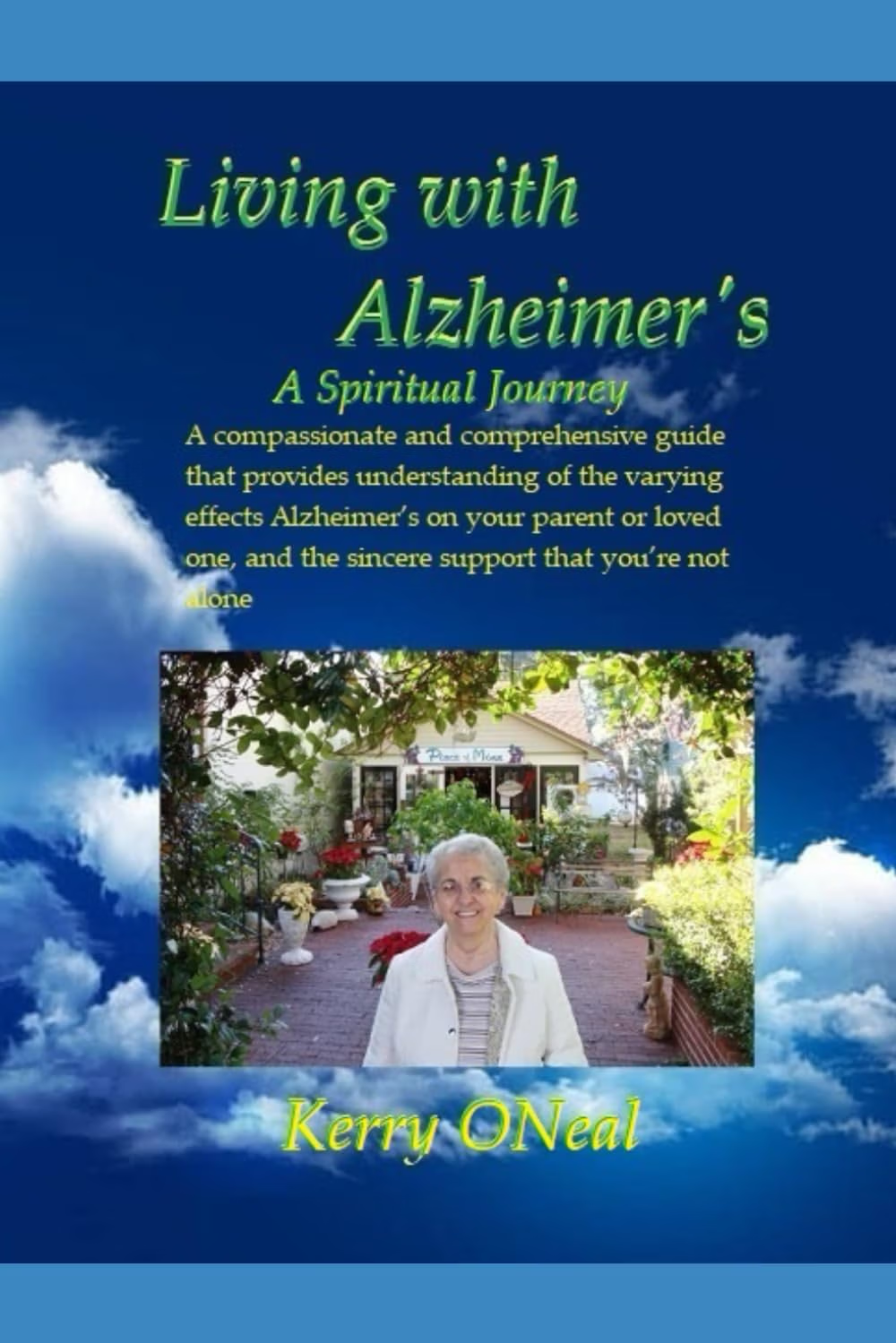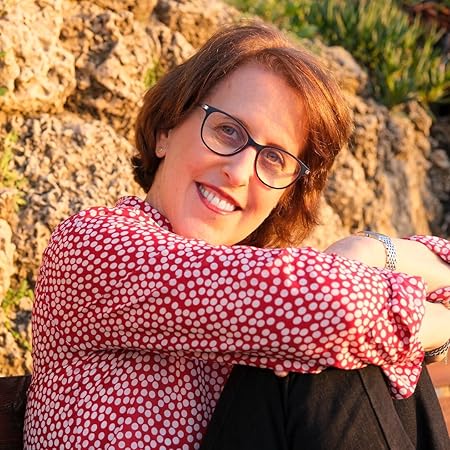Kerry ONeal’s journey as an author is one of creativity, compassion, and resilience. From crafting bedtime stories for his daughters to writing deeply personal and practical books about caregiving, Kerry’s work spans a remarkable range of genres and themes. In this interview, he opens up about the inspiration behind his children’s stories, his experiences as a caregiver for his mother with Alzheimer’s, and his thoughts on balancing personal narratives with imaginative fiction. Join us as Kerry shares his insights, his challenges, and his ongoing projects that continue to touch the hearts of readers everywhere.
WritersNAuthors: What inspired you to create bedtime stories for your daughters, and how did that evolve into your first published books about the caterpillar and the monarch butterfly?
Kerry ONeal: My dad was a concert pianist, a teacher, an artist, and an author who always said I had a creative imagination. He was friends with amazing people like Dick and Jerry Van Dyke, Charles Laughton, Agnes Moorhead, and Sharon Stone. His influence and support helped shape my creative journey. When my daughters were little, they loved bedtime stories, and I was happy to create tales for them, especially about nature. One night, I told them a story about a lonely caterpillar who dreamed of flying. My eldest daughter, Shawna, asked, “Daddy, do caterpillars know they’ll fly someday?” That simple question became the foundation for my first story, I Wish I Could Fly – The Lonely Caterpillar. Later, I wrote a sequel, I Can Fly – The Lonely Butterfly, and both stories were published in one book in 2006.
WritersNAuthors: How do you find the balance between storytelling for children and writing more profound, reflective works like your recent books?
Kerry ONeal: After my mom passed away from Alzheimer’s in 2013, I channeled my emotions into writing short stories. My first one, “Wilma,” was dedicated to her, and from there, I wrote 13 stories across different genres. I balance children’s storytelling with reflective works by following my creative impulses. Often, ideas come to me in dreams or during early morning writing sessions. For me, the joy of storytelling—whether lighthearted or profound—comes from embracing the moment and letting inspiration guide me.
WritersNAuthors: Can you share the process of turning your short stories into a full-fledged book of collected works? What motivated you to take that step?
Kerry ONeal: It began with a single story, and as I kept writing, I realized I had enough material to create a diverse collection. I decided to explore various genres, from ghost stories and the supernatural to inspirational and science fiction. The title, What If, reflects the central theme of curiosity and possibility in each story. Since then, I’ve focused on specific genres for subsequent books, such as Wilderness Legends, Obscure Reality, and Amazing Tales.

About Living with Alzheimer’s: A Spiritual Journey
WritersNAuthors: What made you decide to write a book about your mother’s battle with Alzheimer’s, and how did you approach combining personal experience with practical advice for caregivers?
Kerry ONeal: After my mom’s passing, I delved into researching Alzheimer’s because I wanted to understand what my sister and I could’ve done differently. This year, I felt compelled to share our story, releasing the book on the anniversary of her death. I combined personal anecdotes with actionable advice for caregivers, structuring the book to resonate with those navigating this challenging journey.
WritersNAuthors: Many caregivers struggle emotionally. How did writing this book help you process your own experience?
Kerry ONeal: Writing this book was cathartic. It brought back tearful memories but also helped me find peace. Through the writing process, I aimed to create a compassionate guide that reminds caregivers they are not alone and provides them with practical advice and emotional support.
WritersNAuthors: The book provides actionable strategies for caregiving, such as managing mealtimes and creating a safe environment. How did you decide which topics to include, and did you find any of them especially challenging to write about?
Kerry ONeal: I structured the book based on the progression of Alzheimer’s, starting with personal stories to contextualize each chapter. While writing about my mom’s final moments was emotionally challenging, it also inspired me. Revisiting these memories reinforced how precious her life was and how much she shaped mine.
WritersNAuthors: What role did spirituality play in helping you navigate your mother’s illness, and how do you convey that in your book?
Kerry ONeal: Spirituality was central to this journey. I often prayed for strength, like the time I prayed at the Orlando airport to make it home to see my mom one last time. Throughout the book, I emphasize the importance of faith in navigating the emotional and physical challenges of caregiving.
On Caregiving and Community
WritersNAuthors: What message do you hope to share with caregivers who feel isolated or overwhelmed by the challenges of Alzheimer’s?
Kerry ONeal: My main message is: you are not alone. Caregiving is incredibly difficult, but there are resources, support systems, and communities that understand your struggles. My book serves as a companion to help caregivers feel seen and supported.
WritersNAuthors: What do you think is the biggest misconception about caring for someone with Alzheimer’s that you aim to address in your book?
Kerry ONeal: A common misconception is that reminding someone with Alzheimer’s about who or what they should remember is helpful. It often causes distress and confusion. In the book, I share moments when my mom’s tearful eyes reflected this struggle, emphasizing the importance of approaching caregiving with compassion and understanding.
WritersNAuthors: How do you suggest caregivers balance their own self-care while providing support for a loved one with Alzheimer’s?
Kerry ONeal: Self-care is essential. In one chapter, I discuss the importance of exercise, a healthy diet, mindfulness, and resilience. Caregivers need to prioritize their well-being to effectively support their loved ones.
Writing Process and Future Projects
WritersNAuthors: Your recent novella Nightmare has received critical praise. How does writing fiction differ from writing a deeply personal and practical book like Living with Alzheimer’s?
Kerry ONeal: Writing fiction allows for creative freedom, while non-fiction requires thorough research and factual accuracy. Living with Alzheimer’s took nearly ten years of research and demanded emotional vulnerability, whereas fiction gives me the liberty to explore different narratives and characters.
WritersNAuthors: Do you have any new projects in the works, and can we expect more books blending your personal experiences with practical advice?
Kerry ONeal: Yes! I’m currently working on Living with Parkinson’s – Together, inspired by my girlfriend Lisa’s journey with Parkinson’s. I’m also writing a collection of ghost stories titled Presence and a love story called The Best Year of My Life.
WritersNAuthors: What advice would you give aspiring authors who want to write about their personal experiences or struggles in a way that connects with others?
Kerry ONeal: Understand your subject deeply and approach it with empathy. Connecting with your readers on a personal level is key to creating meaningful and impactful stories.
Reflection and Legacy
WritersNAuthors: How has your mother’s journey with Alzheimer’s shaped not only your writing but also your perspective on life and caregiving?
Kerry ONeal: Writing about my mom’s journey reminded me of the deep love and connection we shared. Caregiving is one of the hardest roles, and it’s vital to approach it with compassion and understanding. It’s also a reminder to cherish the moments we have with loved ones.
WritersNAuthors: Looking back on your writing career, what do you feel most proud of, and what do you hope your readers take away from your work?
Kerry ONeal: I’m proud of creating stories that entertain and resonate with readers across various genres. My goal has always been to connect with people, whether through laughter, inspiration, or shared understanding.
WritersNAuthors: If you could tell your younger self—who was just beginning to write bedtime stories for your daughters—one thing, what would it be?
Kerry ONeal: Listen to your children. Their curiosity about nature and life can inspire stories that bring joy and meaning to others. Every question holds the potential for a story worth telling.
This conversation with Kerry ONeal highlights his incredible journey as a writer, caregiver, and storyteller. His passion for connecting with readers and sharing his experiences offers a valuable resource for those navigating similar challenges, as well as inspiration for aspiring authors. Learn more about the author by visiting https://www.kerryonealauthor.com




















